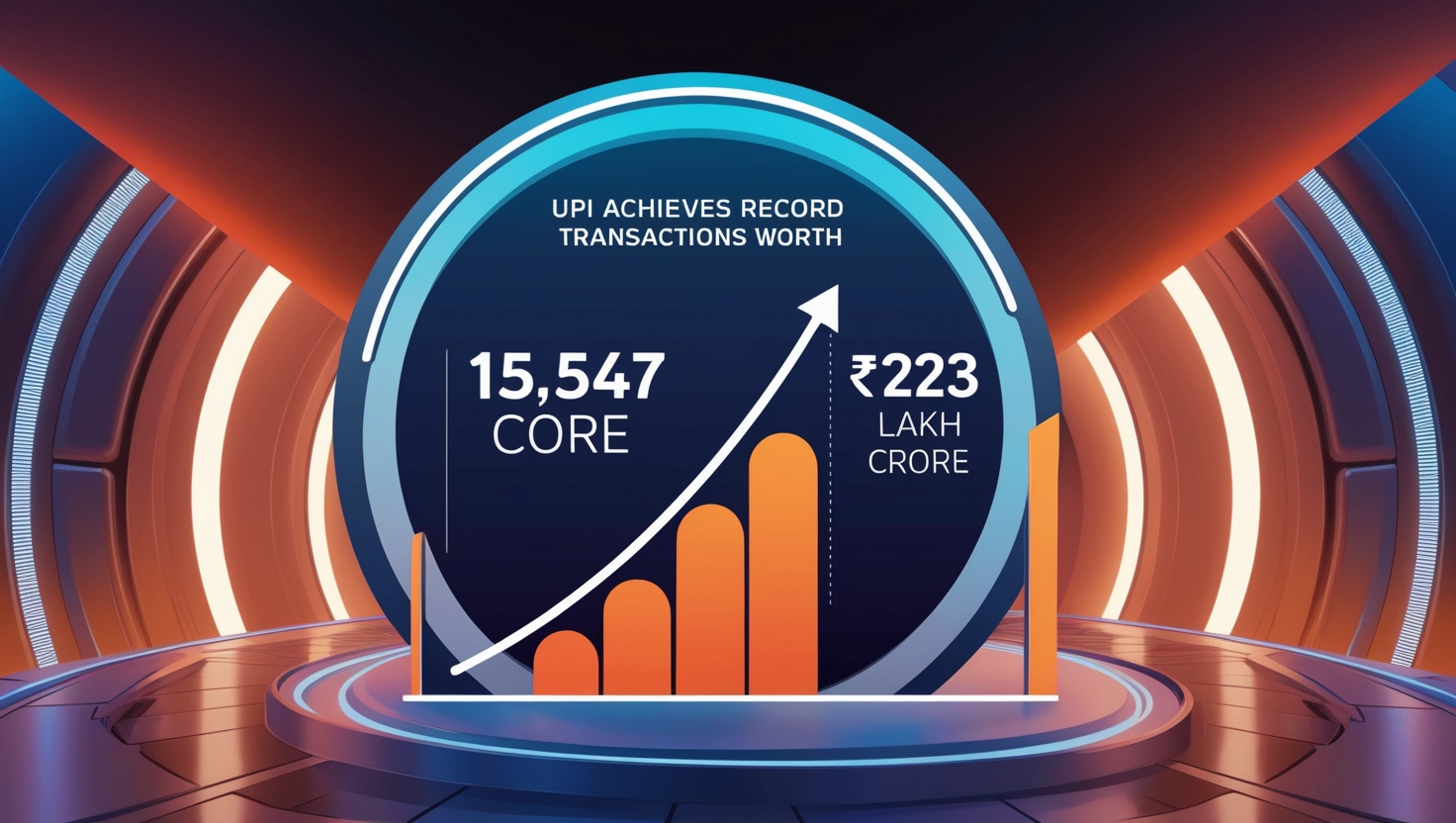Introduction
India’s Unified Payments Interface (UPI) has once again written the history of digital payments by reaching a record high of 15,547 crore transactions worth Rs 223 crore in November 2024. driving the country towards a cashless economy.
In this article, we will explore the factors contributing to UPI’s record growth, its benefits and the future of the digital payments system.
The rise of UPI: the evolution of digital payments
UPI, launched in 2016 by the National Payments Corporation of India (NPCI), has become the global benchmark for real-time payment systems. Its journey from a handful of transactions to Rs 15,547 crore in less than a decade underscores its adaptability and ease of use.
Key events in 2024:
Transaction volume: Rs 15,547 crore (38% year-on-year).
Transaction value: $223 million (41% more than last year).
What makes UPI so successful?
Ease of use:
UPI enables seamless 24/7 transactions with just a mobile number or UPI ID, eliminating the need to provide bank account details.
New features:
- Automatic subscription payments.
- UPI credit for micro-loans.
- Payment limits for NRIs and international transactions.
Security:
Multi-layer authentication ensures secure transactions, increasing user trust.
Breaking the £223 lakh crore milestone
UPI adoption is not limited to metropolitan cities; its penetration in tier 2 and tier 3 cities has been phenomenal. From small grocery stores to large corporates, UPI caters to payments of all sizes.
Small transactions: are managed by QR code-based payments.
High Value Transactions: Used for utility bills, EMIs and business to business payments.
UPI’s Impact on Indian Economy
Financial Inclusion:
UPI has empowered millions of citizens with limited access to banking services, bridging the gap between urban and rural India.
Empowerment for businesses:
Small businesses and startups rely heavily on UPI for their day-to-day operations.
Cashless Economy:
Reduced reliance on cash has curbed black money and increased transparency.
Global presence:
UPI is now accepted internationally, with partnerships in countries like Singapore, the United Arab Emirates, and France.
What’s next for UPI?
As UPI continues its growth trajectory, several developments are on the horizon:
Border payments:
Expanded partnerships with international banks to make global transactions seamless.
Credit integration:
Giving users instant access to credit through UPI.
Voice payments:
Improved AI features to make voice transactions work in regional languages.
Rural expansion:
Looking to penetrate deeper into rural areas to achieve 100% financial inclusion.
How does UPI compare globally?
UPI’s growth has made it the benchmark for real-time payment systems worldwide. It surpasses its peers like PayPal, Zelle, and Alipay in terms of transaction volume and ease of integration.
Conclusion
UPI’s success of 15,547 million transactions worth ₹223 lakh crore as of November 2024 is a testament to India’s digital transformation. With user-centric features, security and flexibility, UPI is not only transforming the Indian economy but also setting the global standard for digital payments.
Looking ahead, UPI’s role in making India a cashless economy is undeniable. It’s a 10-chai bill Whether it’s a payment or a ₹10 lakh business transaction, UPI is at the forefront of transforming the way transactions are done in India.
FAQs
- What is the total transaction value achieved by UPI in 2024?
UPI recorded transactions worth ₹223 lakh crore by November 2024. - How does UPI benefit small businesses?
UPI provides a cost-effective and seamless payment option for small businesses, boosting sales and transparency. - Can UPI be used internationally?
Yes, UPI has expanded to global markets like Singapore and UAE, enabling cross-border payments.









